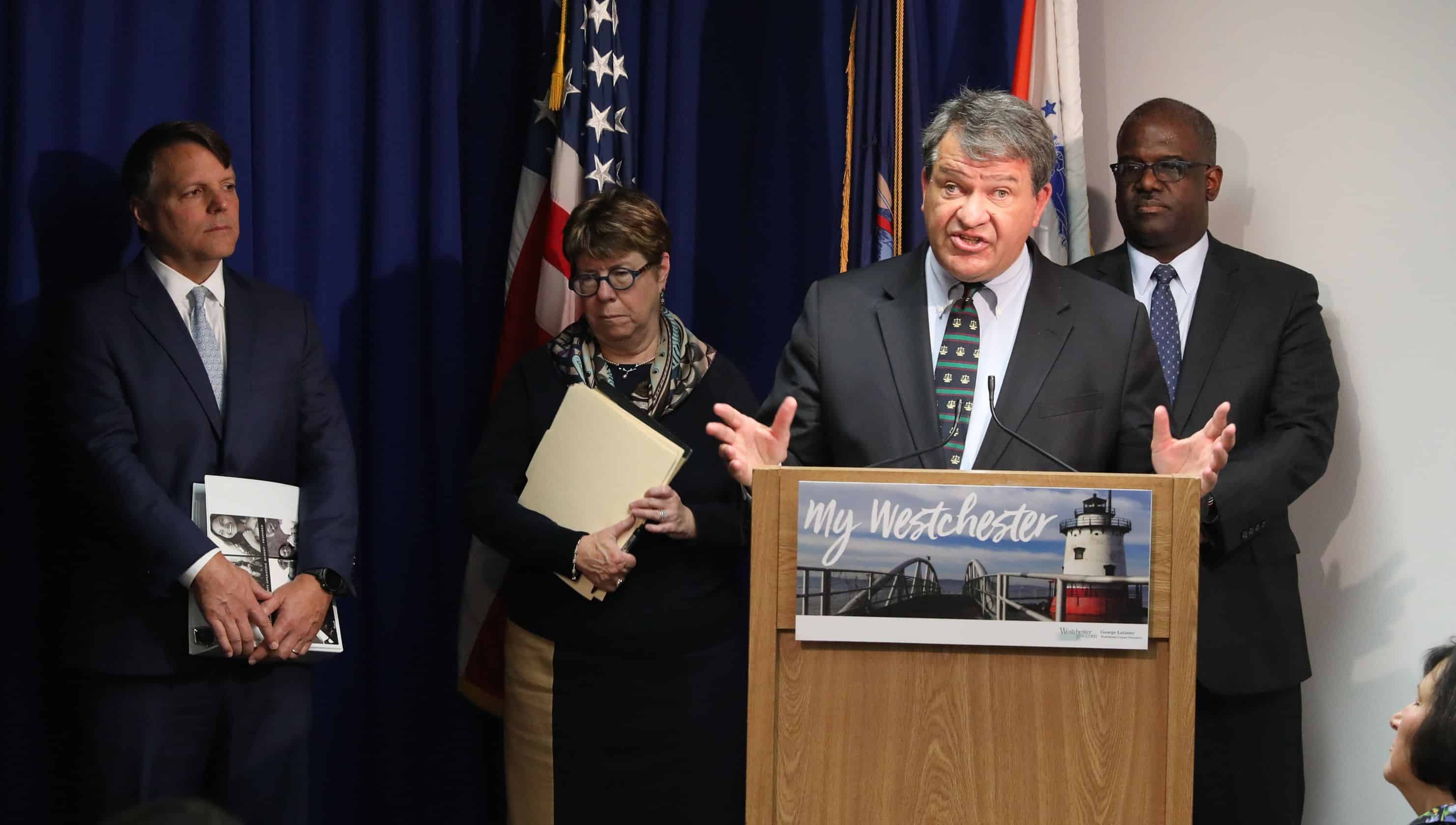
Westchester County Executive George Latimer last week released his first county budget since being elected last year. The $1.94 billion spending plan stays below the property tax with a proposed 2 percent property tax increase.
“I am proud to present this budget to Westchester taxpayers and the Board of Legislators – my partner in responsible government,” said Latimer. “This year, my administration held more true public input sessions on this budget, and other county matters, than any executive had before. These sessions resulted in this budget. It is time to move Westchester forward together and plan not just for now – but for the future.”
Latimer’s spending plan does not dip into the county’s “rainy day” fund, or fund balance. The budget also maintains all essential services for county residents at current levels, will pay all county employees the 2019 state minimum wage of $12 per hour, increase support for daycare and not-for-profit service providers, and implement raising of the age of criminal responsibility from 16 to 18 years old.
This is done with a modest 2 percent increase to the property tax levy – well below the 5.7 percent tax cap Westchester is afforded, according to an independent audit.
For the first time in recent memory, the 2019 budget projects the true cost of running county government for the year. Previous budgets, like the 2017 spending plan, had run a $32 million general fund operating deficit. For 2018, the projected general fund shortfall now stands at $39 million. This budget hole of $71 million is roughly a 50 percent reduction in the county’s rainy day fund. As noted by each of the three major rating agencies and the Office of the State Comptroller, continued reliance on these funds is not sustainable.
How was Latimer and his team able to craft a budget with a $39 million budget shortfall that also includes a settlement with the county’s largest union (Civil Service Employee Association) and its 4,000 employees?
The 2019 budget includes a host of strong financial decisions aimed at restoring order to Westchester’s fiscal house, including a county hiring freeze and renegotiated contracts; a $4 million annual savings on the Liberty Lines contract; issuing a new request for proposals for corrections health care; improved risk assessment; shared services implementation; innovating reoccurring revenues like the NuEnergen “Demand Response” program; collective bargaining stability; CSEA contribution to healthcare; county space assessment/consolidation; and streamlining capital program implementation.
“This budget strikes a balance between providing the services all of the residents of Westchester expect and deserve, and keeping property taxes at a level they can afford,” said Latimer. “The modest increase included in the budget is within the state property tax cap and acknowledges the hardship the federal government has imposed on the people of Westchester through the loss of the state and local tax deduction in the American Tax Cuts and Jobs Act.”
Latimer’s budget also includes several “one-shot” revenue items, including the sale of the parking lot at the County Center for $22 million. In addition, during his press conference, Latimer said that he will pursue a sales tax increase and the installation of red light cameras on county roadways.
Revenue estimates for 2019, most notably sales tax predictions, have also been increased by Latimer’s budget office.
Some have criticized Latimer’s budget as being “more of the same” budgetary games played by the former county executive, republican Rob Astorino. “The current county executive and the Democrats on the Board of Legislators all campaigned on the promise that they would not balance future budgets using one-shots and over-estimated revenues, which they vociferously criticized the previous administration for. Just goes to show that governing is vastly more difficult than criticizing,” said one county insider.
The only difference between the circumstances behind Astorino’s budgets and Latimer’s first budget is that Latimer inherited several budget challenges left behind by Astorino. Most of those who followed the budgets across the county had expected a budget as high as 5.7 percent.
Perhaps some of the reason for a 2 percent budget was that all 17 of the Westchester County legislators are up for re-election next year and all 17 were unanimous in the belief that they did not want to run on a budget with a 5 percent tax increase or higher.
Astorino used every tool, gimmick and new revenue source that he could to not raise taxes. Those who supported Astorino’s efforts should not criticize Latimer, or his administration, for selling a parking lot or seeking new revenue enhancements.
Rising newspapers believes that we speak for the vast majority of homeowners and taxpayers in Westchester when we say we are pleasantly surprised by the 2019 county budget proposal and 2 percent tax increase. After seven years of a 0 percent county tax increase, 2 percent is more than reasonable.
The Board of Legislators will now review the budget, and meet with county departments in the board’s Committee on Budget and Appropriations. Following this review, the board will submit any additions or deletions it has to the budget, vote to move the budget out of committee for a final review, and a vote by the full board. The final budget will then be sent to Latimer for his signature or veto.
“I look forward to working with all of the members of the Board of Legislators to deliver a transparent and responsible 2019 budget for the people of Westchester County,” said Latimer. “Now is the time to focus on the future, on moving forward – together.”
The dates and location of the public hearings on the 2019 budget are: Tuesday, Nov. 20 at 7 p.m. at Yonkers Riverfront Library, 1 Larkin Center, Yonkers; Tuesday, Nov. 27 at 7 p.m. at Ossining High School, 29 South Highland Ave., Ossining; and Wednesday, Dec. 5 at 7 p.m. at the Board of Legislators Chambers, 148 Martine Ave., eighth floor, White Plains.
If you would like to speak at any of these meeting, note that sign-up begins at 6:15 p.m.





